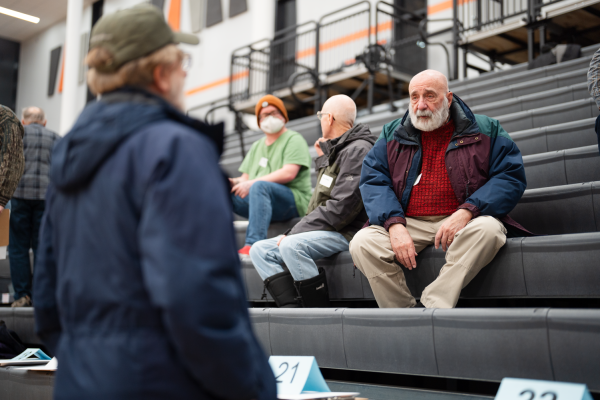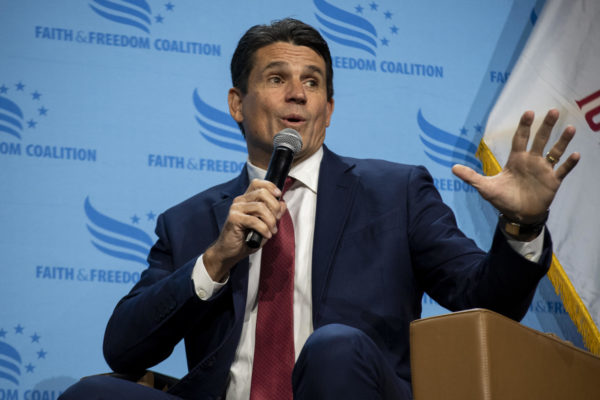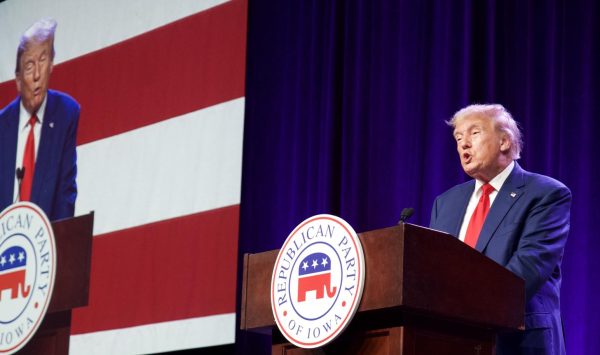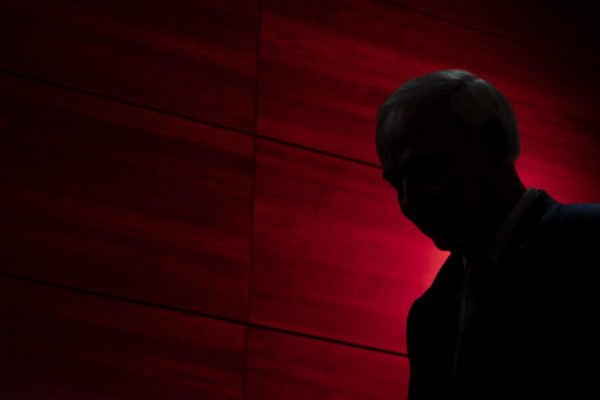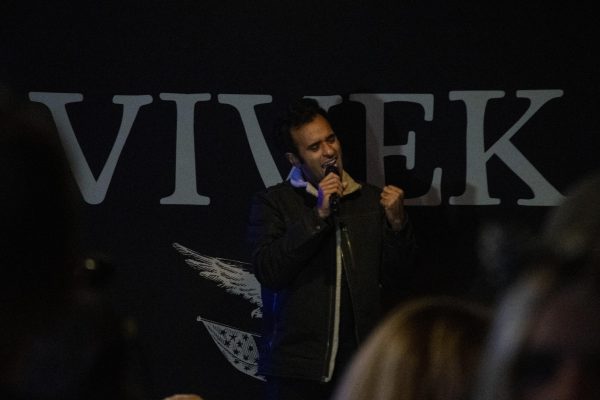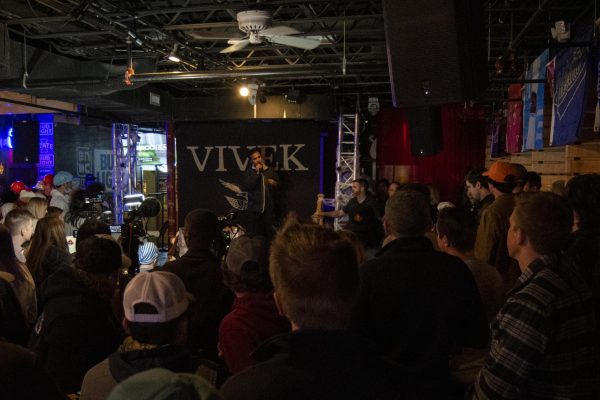Protesters struggle to stay awake on first night of sleeping ban
January 31, 2012
WASHINGTON (CNN) — Living in a public park as a means of protest is not protected by the First Amendment, a federal judge said Tuesday in rejecting an Occupy DC demonstrator’s request to keep park police from enforcing a ban on camping.
Dane Charles Primarano sought a temporary restraining order prohibiting the National Park Service and its police department from taking action against protesters found sleeping or in possession of camping gear in Washington’s McPherson Park and Freedom Square.
Primarano, who represented himself, argued camping at the park was a form of constitutionally protected free speech. Judge James Boasberg disagreed, saying it was a matter of public policy, not constitutional law.
The setback for protesters comes on the first full day of the camping ban enforced by U.S. Park Police. Authorities told protesters Monday that they had to remove camping gear such as sleeping bags and housekeeping materials, but could keep their tents as long as one flap is open at all times.
Protesters said Tuesday that police had told them they had “a few hours” to remove a large blue tarp they had draped over a statue of the park’s namesake, Civil War Gen. James B. McPherson. Protesters had dubbed the tarp the “tent of dreams.”
They were meeting at mid-day to discuss how to respond.
Protesters who had struggled to stay awake overnight vowed to stay strong early Tuesday.
“I had more fun in the park last night than the whole time I’ve been here,” said demonstrator Amanda Rickard. “We were out here playing guitar, singing, playing drums, Scrabble, card games, you know, just stuff to keep us busy so we can stay here and stay awake.”
But one protester said he wouldn’t be surprised if the mandate against camping gear and sleeping in the park takes its toll on protesters.
“To be honest, I don’t know how long we can keep this up,” Kevin Wiley said after a sleepless night.
It was clear protesters did not like the rules. “No justice, no sleep,” one protester scrawled on a tent.
Another sign, written in white paint on a blue tarp, said: “Evicted from home by the banks. Evicted from the tent by the police. 99% has no safe place to rest.”
But Wiley said they were trying to abide by the rules to “show we are law-abiding citizens.”
“We’re not out here just trying to have a good time, we are out here for a political message,” he said.
Protesters had made arrangements to sleep off-site in shifts, said Rickard, who acknowledged nodding off for about 10 minutes overnight.
Occupy DC is part of a larger activist surge that began last year in New York and quickly spread across the country.
While the protesters have highlighted a number of causes, the overarching theme has remained largely the same: populist anger over what activists portray as an out-of-touch corporate, financial and political elite.
On Monday, City Hall in Oakland, California, reopened after a violent weekend clash between police and protesters that resulted in about 400 arrests. Authorities said protesters broke into the building and committed acts of vandalism inside.
Police in Charlotte, North Carolina, also dismantled several tents at an Occupy camp there.
“We’re doing the right thing, peacefully and quietly,” protester Malachi Vinson told CNN affiliate WCNC. “We’re expressing ourselves in a better way than anyone else would.”
— CNN’s Athena Jones, Joe Sutton, Courtney Battle, Paul Courson, Brian Todd, Dugald McConnell and Stacey Samuels contributed to this report.








